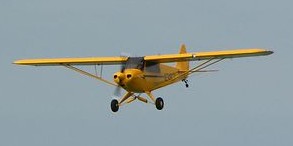 If you fly aircraft that you do not own, the answer is an unequivocal “YES!”
If you fly aircraft that you do not own, the answer is an unequivocal “YES!”
If you drive a car or own a house, you are required to carry insurance – this is for YOUR protection as much as it is for others’. So why don’t most of us even think about insurance when we fly? Maybe it’s because we don’t OWN the planes we fly, more often than not. If you own the plane, your financing will require that you carry insurance to protect THEM in case of an accident (they want to make sure that they get the money they shelled out on your behalf to buy the plane).
“But if I am RENTING a plane, that means that the FBO will have insurance on it right?”
Yes.
“Then won’t I be covered by the FBO’s insurance if the plane is already covered?”
Probably NOT. The FBO covers their aircraft for damage so that the plane can get repaired and back into service as quickly as possible. But if you were flying (or taxiing, or moving the plane by hand, etc.) at the time of the damage, the insurance company that had to pay the claim will probably “subrogate” the claim – that means they try to get the money they paid out back from the party at fault. That would most likely be you in the above scenarios. Also, the FBO will probably want to get the deductible for their insurance paid back from you as well. Meaning you could be on the hook for the entire amount, even though the FBO had insurance.
“But if I damage a plane such that insurance would need to be used, I’ll most likely not be around for the financial aftermath. I’ll be watching from above, in a very dead manner, I would think.”
That’s possible, I suppose. But your family will still be around for the aftermath. Do you want your wife and children – already mourning your loss – to have to deal with the financial implications? Also – take a look at the above list of ways a plane might be damaged. If you prang a wingtip pulling a plane out of the hangar or drag it along the fence when taxiing in to a tie-down, do you think that will kill you? Maybe your ego, a little, but you’ll be fine and dandy to talk to the lawyers about how it happened, and a bank about the huge personal loan you’ll need to pay for it (or an attorney of your own when you have to declare bankruptcy because of all the zeroes they tell you are needed to fix it).
“So what do I do? Stop flying?”
Please don’t. I would hate to see someone give up something they enjoy, or possibly even want to make a career of out of fear of an unlikely event – albeit an event that COULD happen to any of us.
There are many options to choose from when it comes to “non-owned aircraft” insurance policies. Here’s a short (and incomplete) list (I do not get any money if you purchase a policy from any of these providers – this is just a list to help you find the right protection for your personal flying. I have had policies from both Avemco and AOPAIA, and currently have CFI policy with Aviation Insurance Resources):
- AOPA Insurance Agency
- Avemco
ChartisAIG (Chartis was a subsidiary of AIG but rebranded back to AIG in 2012)
- Starr
- Aviation Insurance Resources
Wow, I never would of thought that you should get insured when flying a plane. It makes sense but now that it’s out there, how many people actually get insurance? Great post, thanks for sharing!
The paragraph at the end seems to contradict the message in the main body; i.e.,
“The last thing we should discuss about choosing a renters insurance policy, is that you don’t want TOO much coverage, or you’re paying more than you need to. Find out from your FBO what their deductible is, and make sure you get Physical Damage Liability to cover that amount (but no more). In other words, if your FBO has a $5000 deductible, get $5000 of physical damage coverage (but no more). That will cover the deductible and keep you from being charged for it by the FBO.”
The main paragraph suggests buying enough hull damage insurance to cover the entire value of the plane because the FBO’s insurance company is likely to come after the renter through the process of subrogation.
I’m confused.